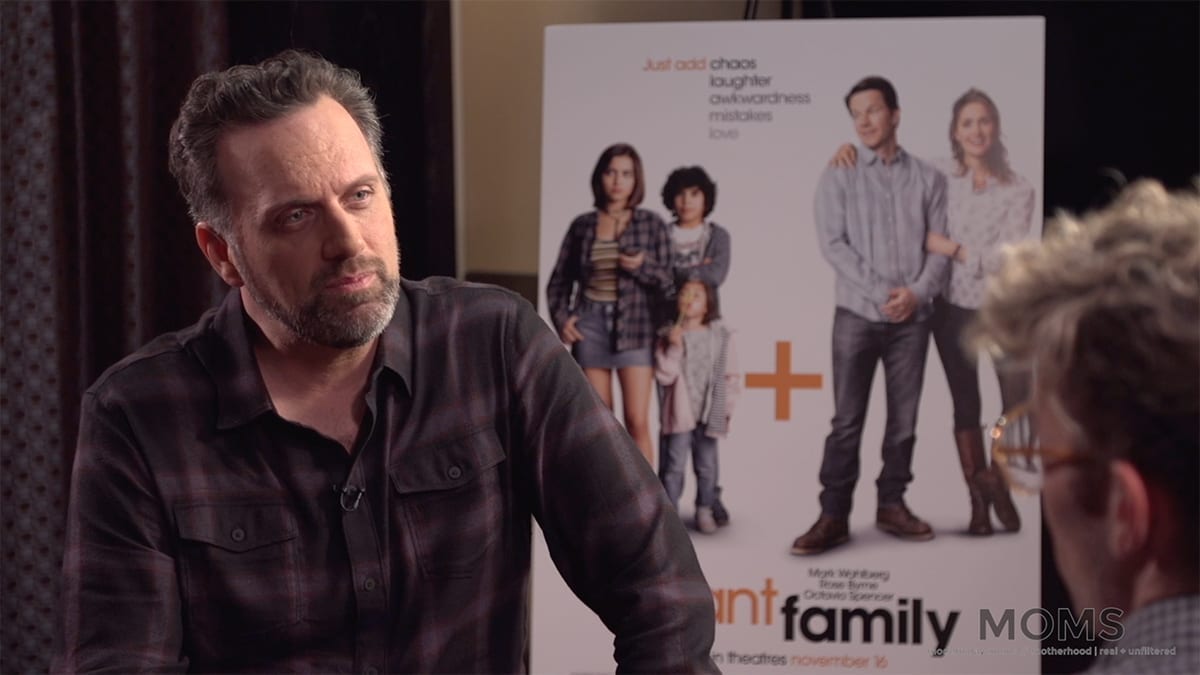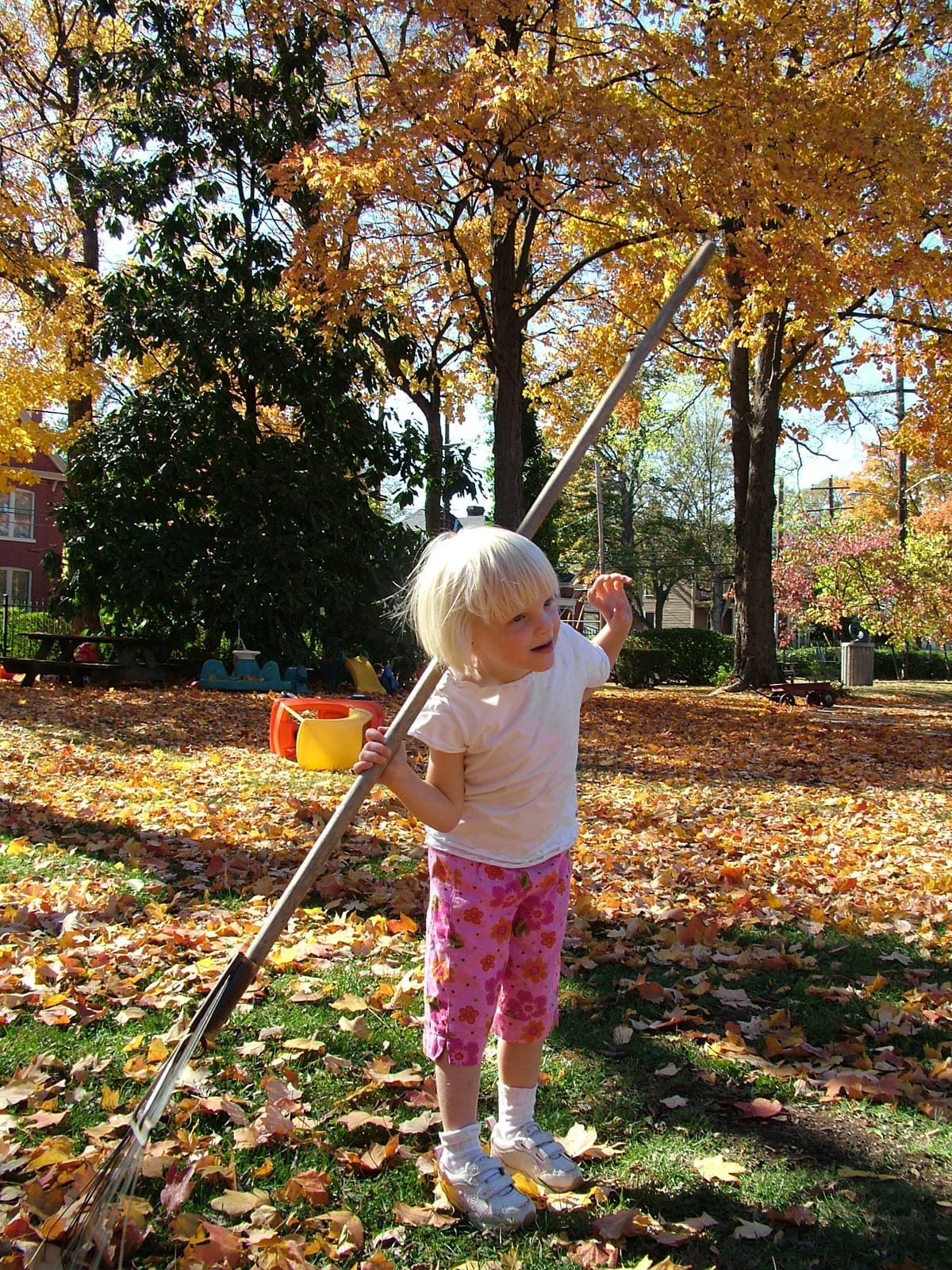Our film critic Dustin Chase sat down with writer/director Sean Anders whose new film Instant Family starring Mark Wahlberg and Rose Byrne details much of his own experience with adopting children out of the foster care system. Anders, whose directed comedies like Daddy’s Home (also with Wahlberg) and Horrible Bosses 2, dives more into the dramedy side of things with Instant Family. He said his intent was to show a different side of the story than the usual serious dramas, the most recent being the Oscar-nominated Lion. “I wept at that film, but I wanted to show something different here,” Anders said.
Pete (Wahlberg) and Elle (Byrne) have a very successful house flipping business in rural California. They are happily married, moving past starting a family until her competitive sister brings up the idea. A joke from Peter about adoption turns into research which lands the couple in an 8-week foster parenting course. Not an easy decision, but finally they embrace the idea after meeting a very pushy 15-year-old Lizzy (Isabela Moner) who comes with a brother and sister. Instantly the Wagner’s go from two to five. The younger children adjust more easily, in desperate need of love, nurture, and stability. Lizzy is rebellious and refuses to embrace the new possibilities. Just when Pete and Elle feel like they have control on this new normal, the children’s mother reappears to further complicate the situation.
—— A transcript of the interview is included below: ——
Dustin Chase: This is a film about Mark Wahlberg and Rose Byrne who become foster parents but is based on your own experience.
Sean Anders: Its inspired by my experience of adopting three kids out of the foster care system. It’s also inspired by a lot of others families who I met along the way.
DC: What specifically can you talk about that specifically relate to what you endured in this process?
SA: My story started exactly like their story. I made that joke that Mark makes in the movie. We were trying to decide whether or not we wanted to have kids. I said I feel like I am going to be one of those old dad’s. So why don’t I just adopt a 5-year-old and it will be like I got cracking five years ago. That’s really how their story and our story gets going. There were so many similarities. The scenes that jump out at me are when they are first bringing the kids into their home, and that first night and how it’s just awkward and strange that situation is for everybody involved. That moment when Mark calls the kids to dinner and Rose says “what”, that sounds crazy coming out of your mouth. The trying to decide to we bathe these kids and do we kiss them goodnight. That first night was such a strange experience. There is one other that I will mention. There is a scene where Mark and Rose are at their wit’s end and trying to have this conversation and have some way back to their easy, simple life they had before. I’m not proud of it, but that was right out of my life.
DC: So this is the third time you and Mark [Wahlberg] have worked together, so what is it about Mark that keeps this collaboration going.
SA: I just think Mark is hysterical, I think he is really funny. Whether it’s a comedy to be done, I am always thinking of him first. Beyond that, and with this movie, in particular, this movie goes so far beyond the comedy this is more of a dramedy than what I have done in the past. Its great to know that a guy like Mark, who’s done amazing things like The Fighter and that kind of stuff, Mark can do anything. So it’s great working with him because he can handle all aspects.
DC: In the beginning of the film, we see some of the jokes and then transcends into a drama before the audience’s eyes as we lose some of that stuff and get more serious. Was that always something you wanted to do because you said you wanted to offer a different type of foster/adoption movie than we have seen before.
SA: There is probably more comedy in the first half of the movie, but the comedy does continue all the way through. That was something that was important to us, that even when we get into some of the heavier moments when things get real and difficult, bring it back to the comedy. Because in real life, those situations, you do have to find a way to laugh. I think some of those laughs are the kind of laughs that feel the best when you are emotionally connected to the characters and then something funny happens. That was always important to me.
DC: And one of the great ways you do that is when Margo Martindale bursts in, she is fantastic in this. Talk a little about her character, the crazy grandma, compared to the other one, and where that basis for her character came from.
SA: She is loosely inspired by my own mom, Grandma “Sally”. A very accepting person who in my situation just came in and claimed our kids immediately. That’s what grandma “Sandy”… the reason audiences love her so much, beyond just Margo Martindale being so fantastic, is that as soon as she walks in the door, one of the very first things she says, “you’re with us” and “I got your back”. I think everyone wants a grandma Sandy in their corner.
DC: Family is clearly an important part of all your films. So talk about why that is always the core value of your films.
SA: I was fortunate to grow up in a family with a lot of love, humor, and dysfunction. Now that I have my own kids and my own family, it’s my life. It just comes back to, write what you know.
DC: Another film about parents becoming a family outside of the normal way is Lion, did that film effect you or any element of the script. Or did you see other films and think, those are good points, I was to steer away from that?
SA: I saw Lion on an airplane, and I was sitting next to this really tough looking dude, and I was in tears. It was really embarrassing. He was watching a football game or something. I love that movie. I think the only thing that jumped out at me in that movie is the compassion they showed for the adoptive parents. I think a lot of times in movies like that the adoptive parents are the weird outsiders that come in and don’t get a lot of attention. I thought that film paid the adoptive parents a lot of compassion. So my movie centers around the adoptive parents and I wanted to treat them compassionately.
DC: Final question, do you think adoption or becoming a foster parent is viewed differently in today’s world for the millennial generation versus the stigma we saw in other films.
SA: I hope so, not a millennial myself, so I can’t say what they think but that is a big thrust of this movie, my hope is that showing a more complete story, that takes people through some of the trauma and tragedy, the laughs and the joy, this awkwardness of becoming a family. My hope is they will come away with a better understanding of who these kids are and how these families are formed.




Leave a Comment